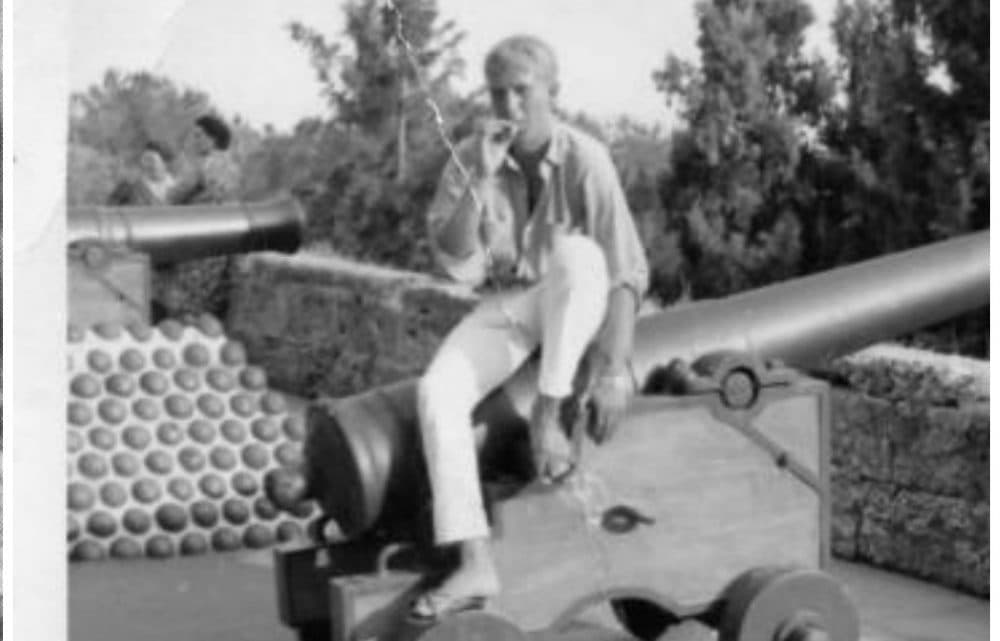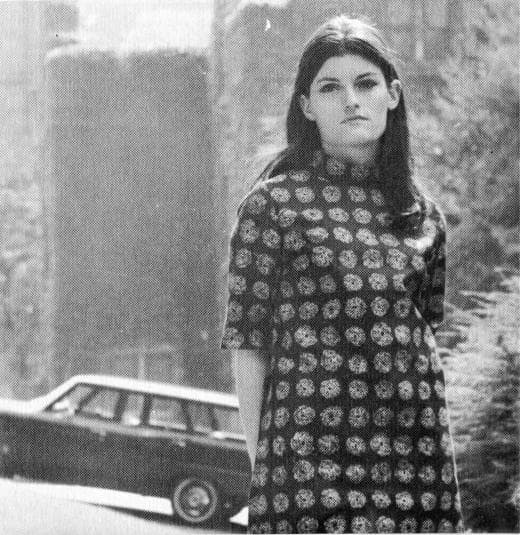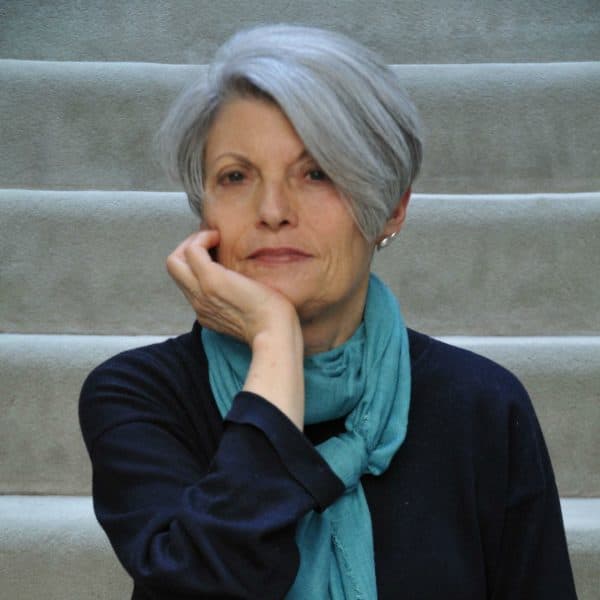Advertisement
Commentary
First Loves Last Forever

I’d been happily married for 46 years, and yet my heart still raced whenever my college boyfriend crossed my mind. We hadn’t been in touch since the affair ended, when Ernst graduated and returned to Germany. But when my husband Michael and I decided to visit Berlin, the thought of seeing Ernst again, of exploring those persistent, swept-away feelings, became irresistible. Despite the risk.
Michael, a nostalgic, loves the idea of revisiting the past and is not a worrier. To him, a bygone love could have nothing on our wonderful life together. I had the misgivings.
I knew how charged my memories were. Ernst’s craggy face and lanky frame were the epitome of European sexiness to me. He seemed so German, you'd never have guessed he’d grown up in the States. And herein lay his transgressive appeal: he had been utterly unacceptable to my parents who — like many Jews in those days — hated everything German.
It was dizzying enough to be in the academic Eden of Bryn Mawr and finally free from my parents’ critical surveillance. But I was also in love — and a taboo love at that. On nights I had to study, Ernst scaled the stone wall of my gothic dorm, where men weren’t allowed, climbing into my room through the casement window.

With that bliss came terror. The first summer of our romance, I discovered I was pregnant, and the illegal abortion Ernst arranged from abroad was discovered by my parents. By insisting I give him up for a year, they only stoked the longing. The second summer of our relationship, I traveled to my college’s outpost in France, where Ernst secretly met me in his new, red convertible. Off we fled. I tied up my long hair in a houndstooth scarf and felt like Audrey Hepburn.
My whole romance with Ernst felt like a movie — and was as artificially framed. Ernst and I floated on a cloud of blissed-out mutual adoration. We never discussed our families, our courses, the future. I studied French and Italian, never German. Of his final departure I have no memory whatsoever.
Three years after we parted, I fell head over heels for Michael, a handsome, Jewish New Yorker who shared all my fascinations. My parents, whom by then I was less interested in torturing, exhaled.
Yet, a lifetime with Michael — of joys savored and struggles overcome, of a family built and memories amassed — failed to dislodge Ernst from my nervous system.
After decades of silence, calling Ernst wasn’t easy, but the moment was electric. Instantly, I was 17, feeling the full force of those long-ago yearnings. His accent made my heart pound — and the way he said my name, "Leez." But at the same time, I remained the observing 65-year-old, hearing a voice that, after a half century of smoking, sounded its age.
Visiting Ernst meant detouring to Munich, but Michael was happy to indulge me and curious, himself. As the reunion neared, my anxieties multiplied: What did I mean to him? Would he recognize me? Would I be undone by the old feelings?
Ernst’s lovely wife greeted us at their front door, accompanied by their youngest daughter who, at 23, was older than I was when I’d last seen her father. And then, there he was, back-lit by the setting sun and just the same: still blond and lanky, as handsome to me in his 60s as he’d been in his teens, the young boy still visible in the now much craggier face.
I hadn’t dreamed our romance. We’d barely got past hellos, when he showed me the gold chain I’d given him all those years ago, which he still wore. He welcomed Michael, poured champagne and rushed to show us his life: the house he’d built, his library, photos of his radiant daughters.
No wonder first love memories remain vivid, their ecstasy owing much to their being first and outside real life.
The three of us relocated to a nearby restaurant where during dinner he asked Michael’s permission to hold my hand and repeatedly told me I was beautiful. At the peak of adolescent insecurity, I suddenly realized, Ernst had given me the gift of seeing me as I’d most wished to be seen.
Curiously, I felt free to ask him absolutely anything. Despite knowing nothing of his entire adult life, I felt I understood him to the core.
Which may be why nothing I learned at dinner seemed surprising. He told us his wife keeps him alive despite his fast-living. While Michael and I roam museums, Ernst parties on the Riviera. Our lives are so different; if we hadn’t been teenaged lovers, we’d likely never be friends today.
My initial experience on the phone of being in two time zones of my life simultaneously did not recur, when we were together. Ernst's physical presence blocked my mesmerizing memory of him—along with the old charge.
Later, I realized ours was a shipboard romance that ended when we pulled into shore. We'd always known our intoxicating differences spelled doom. Still, our romance left me feeling hopeful about love.
We remember best what we feel most intensely. No wonder first love memories remain vivid, their ecstasy owing much to their being first and outside real life.
I'll always be in love with the boy that Ernst was. And why not? It threatens nothing that's come after.
